In Fantasy Matters, I noted Ursula K. Le Guin’s admonition—to fantasy/SF readers and writers alike— to “Know Thy Fantasy Literature.” To understand where, say, the Harry Potter stories “fit” into the sweep of fantasy literature, it is important to know the “school” corpus. J.K. Rowling did not create Hogwarts out of thin air, nor did she hang Harry, Ron, and Hermione’s school experiences on hooks entirely of her own invention.
Not surprisingly, perhaps, a number of readers were interested in this thought strand. I received several e-mails—all from the lower forty-eight, all interested in my parenthetical comment that I’d attended British boarding schools—wondering how “real” Hogwarts was, that is, how like a bona fide British boarding school Hogwarts might be.
With seven years of British boarding schools under my belt—ages 10-12 at one school, 12-17 at another—Hogwarts had always struck me as familiar, but I’d never thought much about the parallels: how many, how deep, how meaningful, how instructive?
Now I have.
Without writing a dissertation on The Reality of Hogwarts, a few thoughts about magical trains, inspiring architecture and secret passageways, Headmasters, quirky teachers (“masters”), quidditch, exams, and great friends.
These reflections also led to a startling realization: Hogwarts misses a thing or two. In the end, I wondered if J.K. Rowling had attended boarding school, or whether she just knew about it, as all Brits do—it’s part of the culture. Regardless, she certainly knew the “school” stories that preceded hers.
Magical Trains
Trains are magical—at least they were.
 Back in the day, in the U.K., you would often see “train spotters” of all ages and the ends of train platforms, recording the passage of trains, noting the names of the engines. At age ten and fresh from California, I thought these people were certifiable. Trainspotting? Didn’t they have anything better to do on cold, rainy days?
Back in the day, in the U.K., you would often see “train spotters” of all ages and the ends of train platforms, recording the passage of trains, noting the names of the engines. At age ten and fresh from California, I thought these people were certifiable. Trainspotting? Didn’t they have anything better to do on cold, rainy days?
But a few years later, though no train spotter, I had fallen in love with trains. There is no better way to travel, the longer the run the better. Trains are, indeed, magical.
 Trains take you places: old familiar places, places you’d never dream of going (but that’s the way the tracks were laid), new destinations—always away from home, at least at the start, the memorable part. Boarding school is all about leaving home. In the language of the Hero’s Cycle, home is the Village of the Known, the train station is The Threshold, the train takes you on The Journey.
Trains take you places: old familiar places, places you’d never dream of going (but that’s the way the tracks were laid), new destinations—always away from home, at least at the start, the memorable part. Boarding school is all about leaving home. In the language of the Hero’s Cycle, home is the Village of the Known, the train station is The Threshold, the train takes you on The Journey.
Whether it’s your parents driving you to school at the beginning of term or—as was true for me later—boarding a London-bound 747 in San Francisco, a “train” whisks you (and all your kit packed into a trunk) away from home, into the unknown, onto the journey of your life.
(Yes, I’m a big fan of high-speed rail. The more the merrier!)
Inspiring Architecture & Secret Passageways
Were I dictator of the world, every school would be an architectural marvel, a marvel for young minds not egotistical architects. It is no wonder the moans about the quality of American education are so loud: the buildings students spend their days in are soulless.
 While the boarding schools I attended weren’t Hogwarts—the old paintings never moved, magic bridges were scarce, only a single tower—they were Victorian and Gothic and marvelous. Creaking, wood-lined passageways. Tight, dark stairwells, the stone underfoot worn smooth from generations of rushing feet. And secret passageways.
While the boarding schools I attended weren’t Hogwarts—the old paintings never moved, magic bridges were scarce, only a single tower—they were Victorian and Gothic and marvelous. Creaking, wood-lined passageways. Tight, dark stairwells, the stone underfoot worn smooth from generations of rushing feet. And secret passageways.
Oh yes.
At the backside of the headmaster’s thatch-roofed house, you could see a grassy mound. This was an old, padlocked, World War II bomb shelter. If that wasn’t enough, it was said to be one of several access points to tunnels running beneath the town, itself a maze of old buildings, tiny Elizabethan theaters, cathedral-like churches, and Roman ruins.
 Though not for lack of trying, my friends and I never did find the subterranean passageways. But we did find a passageway in the main building, many stories up, through the roof rafters. Scrambling up through a trap door in the ceiling, we made our way to an ornate window, one that looked out over “the chapel” far, far below.
Though not for lack of trying, my friends and I never did find the subterranean passageways. But we did find a passageway in the main building, many stories up, through the roof rafters. Scrambling up through a trap door in the ceiling, we made our way to an ornate window, one that looked out over “the chapel” far, far below.
Thrilling.
I should add that the Headmaster’s house remains my idea of the perfect house. A classic Tudor home, it was old, thatched, and sagging, not a straight line or right angle in sight. It smelled ancient too: of wood, rose petals, and fire. It sparked wonder of things past, of whispered secrets and ghosts. The headmaster’s office was in the house, a stone-floor room with a hearth as big as any at Hogwarts. Antique desk and bookshelves, leather bound books, paintings of ships, battles, and craggy mountains.
Headmasters
If Albus Dumbledore is a larger than life Headmaster—the Power that guides the school—then I’ve met Dumbledore, and more than once.
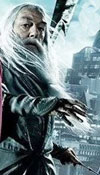 My first Headmaster sprang straight out of a Dickens novel. A military man with no previous teaching experience, he was tough as nails, a Mr. Gradgrind if ever there was one. He also had his Achilles’ Heel: life-threatening diabetes.
My first Headmaster sprang straight out of a Dickens novel. A military man with no previous teaching experience, he was tough as nails, a Mr. Gradgrind if ever there was one. He also had his Achilles’ Heel: life-threatening diabetes.
His command extended over fifty odd seven-to-twelve year olds, and he Made an Impression, a lifelong impression. If there was a representative of the most high on earth, he was it, at least in our minds.
I shall never forget our morning “swims” in the summer term. The unheated, outdoor pool was about 58?F. We were required to swim two laps. A kid from California who’d done swim team, I was back and forth and out in a jiffy. My friends were slow swimmers, and often emerged waterlogged, shivering, and blue.
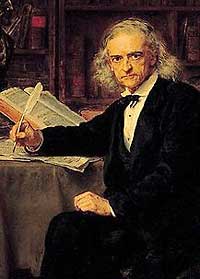 My second Headmaster was pure Victorian: tall and rail thin, inclined to wear a cape, bushy sideburns, an aquiline nose, wire-framed glasses. And he never aged. My son returned to the same school I attended, and the very same Headmaster was still there, looking just as I’d seen him last. He stood outside of time. He was also forever getting lost among the various school buildings and winding corridors.
My second Headmaster was pure Victorian: tall and rail thin, inclined to wear a cape, bushy sideburns, an aquiline nose, wire-framed glasses. And he never aged. My son returned to the same school I attended, and the very same Headmaster was still there, looking just as I’d seen him last. He stood outside of time. He was also forever getting lost among the various school buildings and winding corridors.
Do Headmasters give long, peering-over-spectacles, Dumbledore-type speeches? Oh yes. I have been to many Assemblies at which the Headmaster addressed the whole school, stirring us to we’re-all-in-this-together action of some kind or another. He was an accomplished orator, each word selected with foresight, delivered with precision.
Quirky Teachers
James Hillman, the archetypal psychologist, has said young minds need quirky characters around them. British boarding schools—at least in the past—were chock-a-block full of colorful, multi-dimensional characters that would have pleased Hillman to no end. I can’t help but think much of the attraction for the Harry Potter stories is a desire—a hunger—for character. So many teachers these days strike me as milquetoast, bland, cookie-cutter, cloned, “by the book”—but always someone else’s book.
 As I thought about answering those “Hogwarts” e-mails, it struck me that if ever I needed to populate a wizard school with memorable teachers, I could base all of them on the masters I had known.
As I thought about answering those “Hogwarts” e-mails, it struck me that if ever I needed to populate a wizard school with memorable teachers, I could base all of them on the masters I had known.
There was my physics master, always having his equations corrected by the brighter students, most of whom had fathers working at the particle physics lab just down the road; “just checking,” he would say, too often. There was my art master, talented and inspirational, but usually tipsy or suffering a hangover, always smelling faintly of cheap booze and unwashed clothes. There was my biology master and Housemaster, a man who could remove his glasses more slowly (and dramatically) than anyone I have ever met, reveal two tiny eyes, and wither whomever dared to question him in matters large or small. There was my math master who also sang opera, and my Religious Knowledge master, just down from Oxford, keen on “demythologizing” ancient texts, whose inspiring thoughts got me summarily flung out of Bible Study.
Then there were those masters, too, who resented my presence, cocky Yank that I was. Such “dark masters” might give you detention—or cane you. There was nothing like a good caning to take you up a notch in your friends’ estimation.
While my school wasn’t, like Hogwarts, co-ed, there was a girls school just down the road. And if you had a girlfriend from there, you knew all about the colorful characters shaping your female counterparts’ minds. And at joint dances, to see these two sets of teachers square off? Marvelous!
Quidditch
Rough sports are a staple in British boarding schools: rugby for boys, field hockey for girls. Quidditch is an aerial version of all those Wednesday and Saturday afternoon games spent traveling to other schools, engaging in supervised violence, nursing wounds, reliving games, singing the bawdy Jerusalem—”And did those feet in ancient time ”—at the top of our lungs on the way home.
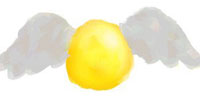 Back in the day, sports were central to school life. Sports were compulsory, a common experience. And at every level you played nearby schools, despising biased refs, nursing grudges for years, and pouring your heart into games against school rivals.
Back in the day, sports were central to school life. Sports were compulsory, a common experience. And at every level you played nearby schools, despising biased refs, nursing grudges for years, and pouring your heart into games against school rivals.
I shall never forget a rugby game during which a particularly offish rival stepped on my forehead with his cleated boots. Noting the blood running down my face, the ref asked if I needed attention. “No,” I said defiantly. I had a score to settle.
So quidditch—is “real”!
Exams
In Britain, your secondary school life is dominated by two sets of exams, O-levels (now GCSEs) taken at about 16, and A-levels taken at about 18. More, these exams, in many ways, determine the arc of your life in a way US examinations don’t.
So Harry’s OWL exams and the importance he and his friends ascribe to them is all too familiar.
Great Friends
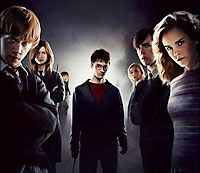 Central to the Harry Potter stories is friendship. Without a doubt, boarding school promotes deep friendships and deep relationships, in the way that getting stranded on a desert island with others might, assuming things didn’t go the way of Lord of the Flies.
Central to the Harry Potter stories is friendship. Without a doubt, boarding school promotes deep friendships and deep relationships, in the way that getting stranded on a desert island with others might, assuming things didn’t go the way of Lord of the Flies.
Living with friends is very different from seeing friends often. I understand Ron and Hermione’s loyalty to Harry, and his loyalty to them. J.K. Rowling captures all of this very well.
What’s Missing?
While Hogwarts well captures much of the British boarding school experience, it struck me that some essential ingredients were entirely absent, which struck me as odd. I’ll mention two: music and Shakespeare.
Music
Once upon a time, music was a big part of boarding school life.
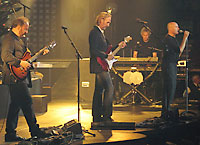 On the informal side: the school had a thriving secondhand LP market, a student-run Jazz Club that only invited rock bands to play at the Music School (and got away with it), and bands. Peter Gabriel, Tony Banks, and Mike Rutherford of Genesis fame met at Charterhouse, a well-known British boarding school in Godalming, Surrey. (Take a look at the school’s web site Flash picture gallery: remind you of Hogwarts?) Though after my time, Radiohead had its origins at the school I attended.
On the informal side: the school had a thriving secondhand LP market, a student-run Jazz Club that only invited rock bands to play at the Music School (and got away with it), and bands. Peter Gabriel, Tony Banks, and Mike Rutherford of Genesis fame met at Charterhouse, a well-known British boarding school in Godalming, Surrey. (Take a look at the school’s web site Flash picture gallery: remind you of Hogwarts?) Though after my time, Radiohead had its origins at the school I attended.
 On the formal side: the chapel choir (whether you had chosen to be in it, or forced to listen to it Sunday after Sunday, year after year), school musicals, a big productions—say, Handel’s Messiah—that included students, masters, and visiting soloists and musicians. And the pipe organs! We had a small one in our chapel, but the massive pipe organs in the cathedrals down town, and in Oxford, just up the road? Wow.
On the formal side: the chapel choir (whether you had chosen to be in it, or forced to listen to it Sunday after Sunday, year after year), school musicals, a big productions—say, Handel’s Messiah—that included students, masters, and visiting soloists and musicians. And the pipe organs! We had a small one in our chapel, but the massive pipe organs in the cathedrals down town, and in Oxford, just up the road? Wow.
John William’s music certainly pervades the Harry Potter films, but music—and the centrality of music—seems absent from Harry, Ron, and Hermione’s lives. Fantasy need not be without music, Ursula K. Le Guin’s Always Coming Home and Margaret Atwood’s The Year of the Flood spring immediately to mind, not to mention the many songs and ballads in Tolkien’s The Lord of the Rings.
How easy it would have been to include music at Hogwarts!
Shakespeare
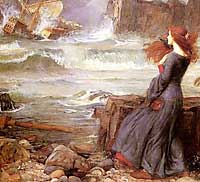 And where is The Bard in Harry Potter?
And where is The Bard in Harry Potter?
Shakespeare was core to English classes, as were memorizing and acting out scenes on a regular basis. We put on whole plays, even difficult ones such as King Lear and Hamlet. Not infrequently we were herded onto buses and whisked to nearby schools putting on their own Shakespeare plays, and we were rewarded with trips to Stratford-upon-Avon, to see the Royal Shakespeare Company.
Oh, to have seen Harry, Ron, and Hermione on stage!
Which Leaves Me Wondering
Did J.K. Rowling attend boarding school? Or did she just know about it, as all Brits do—and, perhaps, bone up on her “school” literature corpus before diving into writing Harry’s adventures?
I do wonder.
A big thanks for the e-mails! What a profitable—end enjoyable—set of reflections!
Dr. Kirtland C. Peterson—”Cat” to his friends and colleagues—feeds his left brain with science, his right brain with the rich feast of fiction, including SF and fantasy.
Among his life’s highlights are sitting in the pilot’s seat of a shuttle prepping for launch at the Kennedy Space Center, and accepting Brannon Graga’s invitation to pitch Star Trek scripts at Paramount in LA.
Just finished Alice Munro’s Too Much Happiness. Tonight’s DVD: Serenity—a favorite.









